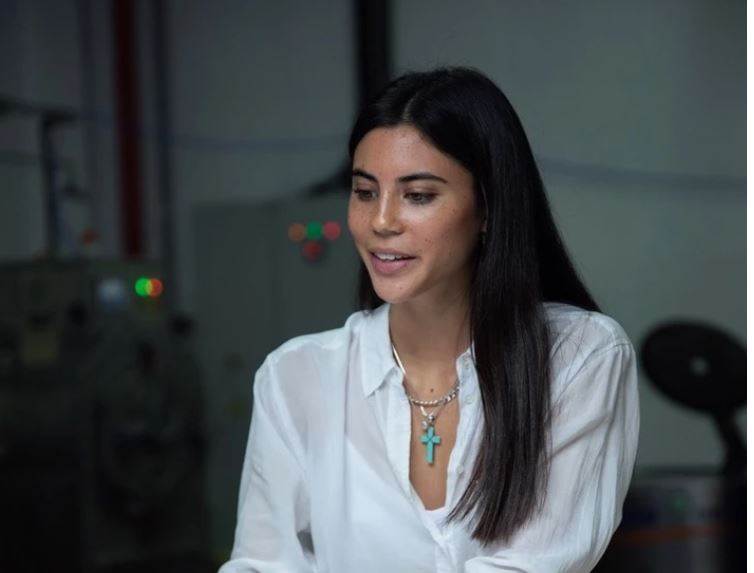Circularity and textiles waste get top billing

Kingpins24 Canada included guests from around the world, covering retail, design and brands, discussing waste, design and circularity, and how some of the industry’s challenges can be overcome.
‘Future Proof Your Brick & Mortar’ heard from Brandon Svarc, founder of Naked & Famous Denim, and Daniel Carman, vice-president of Over The Rainbow, who discussed the trials and tribulations of retail. The Canadian pair spoke about how their businesses had grown, some of the strategies they have used and partnerships that have been created.
Malin Ekengren, a denim designer and consultant who has worked with brands such as Stella McCartney, Marc Jacobs and Alexander McQueen, talked about a responsible design approach. “We need to be eco-creative, and think about the planet when we’re designing,” she said. “We need to produce garments with longer life span and design out waste, as that’s the big problem. The best way is to use biodegradable fabrics, less polyester, less petrol-based materials, use organic cotton, linen and hemp, and when you go through the process you need sustainable wash and manufacturing techniques. Using up deadstock fabrics is another good way – many manufacturers have some you can use. The creative industry needs to work together to shift to a circular economy. We have so much knowledge and creativity and we should all be part of a new future.”
She recently started a niche luxury upcycled denim line, which is sold through Ssone’s store in London and online. “It’s been a real labour of love. I repurposed some deadstock fabrics, and added patchwork pieces with appliques. On a serious note, I do think if we want to reduce waste we can’t just focus on upcycling, there’s not enough of it, even if you had it in all collections.”
She concluded that designers need to create value thought the life of a product. “We need to minimise the resources we’re using – can this be rented, can it be repurposed, etc? There needs a rethinking of the whole fashion industry. Slowing down the growth is needed to shift to a more circular way of working. Somehow we need to balance out the negatives on the environment.”
Denim indutstry veteran Adriano Goldschmied discussed design and ‘New Models of Business’. He explained how the idea for the Ace Gold Green t-shirt, which he launched with friend and retailer Beau Lawrence, came from a desire to create something positive during the pandemic.
“We decided to make something that’s not a jean - because you don’t see jeans on Zoom calls! We thought the consumers would be interested in durability and good quality,” he said. “Also, mania shopping is over, which I’m happy about. Today consumers buy a product only if there is a reason, which means our job as designers is to create a reason to buy.”
He also discussed how he believed the industry would change as a result of the pandemic: a reduction in production, a less formal fashion ‘calendar’ and products that are 100% recyclable, down to the thread.
“The other thing that’s important is helping the new generation of designers who work with small budgets,” he said. “We need a fabric market – why don’t we make all the fabric inventory in the marketplace available to young designers? We could create a new way to recycle the inventory.”
Ms Wells hosted a panel on circularity with Kelly Drennan, founder of Fashion Takes Action; Sabine Weber, founder of Sustainable Strategies & Solutions; and Philippe Cantin, senior director of sustainable innovations and circular economy at the Retail Council of Canada.
Kelly Drennan said the quality of fibres needs to be addressed, with recycled fibres mainly blended with virgin fibres to improve quality, as well as the problems created by hardware such as rivets and buttons. “The sorting time also needs to be faster and more efficient – and because it’s humans, it is costly.” She added while there are companies using RFID and infrared to help sort, they need investment, including from governments. “We are going to present to the Canadian government a business case about why it would make sense to invest in these technologies,” she added.
Ms Weber said one of the major hurdles the industry faces is that textile waste is not a waste category in itself, and because of this, it doesn’t get monitored so there are no concrete facts about how many clothes are thrown away, and how big a textiles recycling industry could be.
Mr Cantin explained that there is so much overproduction and overconsumption and while there are platforms being developed, the pandemic is making it challenging. “When you think of a reuse and second market, it is still growing, even in the pandemic as we are facing economic hardships. Some brands are not interested in having partnerships with thrift as there’s a reputational aspect but there are more partnerships being formed and the current economic crisis is accelerating the demand. Many fashion companies need a wake-up call because they’ve been growing using the same model for years, but now with the crisis, if they want to survive they will have to rethink.”
Amy Leverton from Denim Dudes spoke about the denim trends for last season that she felt would carry over to next. She talked through some brands and influencers that Denim Dudes thought would be influential.
The event also included a studio tour of the workplace of tailor and Craftsman Ben Viapiana, an interview with Adam Taubenfligel, founder of Triarchy Denim, and a Made in Canada manufacturing focus with fashion consultant Sydney Beder and Kathy Cheng, president of clothing manufacturer WS & Co.
Many of the talks will be available on the Kingpins YouTube channel.










